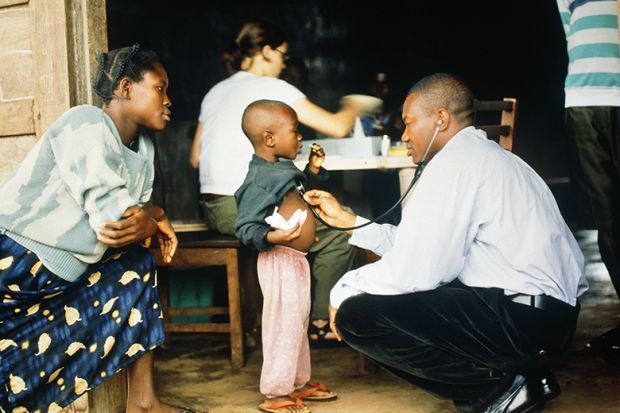Times Higher Education is developing a new global university ranking that aims to measure institutions’ success in delivering the United Nations’ Sustainable Development Goals.
The 17 goals – which include providing inclusive and equitable quality education, achieving gender equality and fostering innovation – were adopted by the UN in 2016 and provide a framework for developing the world in a sustainable way.
The first edition of the ranking will include metrics based on 11 SDGs, but the long-term goal is to measure performance against all 17 goals.
Data will be collected from universities and Elsevier to produce an overall ranking of universities based on the best four or five SDGs per university. Individual rankings of the universities that are best achieving the 11 SDGs will also be published.
The ranking will be open to all accredited universities that teach undergraduates, and the first edition will be launched at THE’s Innovation and Impact Summit in South Korea in April 2019. Data collection will begin this autumn.
Metrics currently being explored include the number of graduates in health professions, the proportion of women in senior academic positions, and policies and practices regarding employment security.
An initial draft of the metrics will be developed in partnership with Vertigo Ventures, an organisation that works with leading research institutions globally to help them identify, capture and report the impact of their work, and there will be a workshop on the first iteration of the methodology at THE’s World Academic Summit in Singapore later this month.
Phil Baty, THE’s editorial director of global rankings, said that THE originally planned to launch an impact ranking based primarily on universities’ economic impact – examining their interactions with business and their development of commercially exploitable ideas – but has decided to expand its approach to cover a much wider definition of impact, based on feedback from the sector.
While some national systems were trying to gather evidence on universities’ role in achieving the SDGs, the new ranking will be the first global attempt at measuring this activity and “moves well beyond established ranking parameters of research and reputation”, he added.
Mr Baty said that the new table will also provide an opportunity for institutions that do not usually appear in the THE World University Rankings to feature.
“We are working to develop metrics that enable universities across the world to evidence their impact – not just those that are located in more developed nations,” he said.
ellie.bothwell@timeshighereducation.com
- To find out more about the ranking and to take part in the data collection, email: innovation@timeshighereducation.com.
- Register here to attend the World Academic Summit in Singapore and join the workshop on the impact ranking methodology.
Register to continue
Why register?
- Registration is free and only takes a moment
- Once registered, you can read 3 articles a month
- Sign up for our newsletter
Subscribe
Or subscribe for unlimited access to:
- Unlimited access to news, views, insights & reviews
- Digital editions
- Digital access to THE’s university and college rankings analysis
Already registered or a current subscriber? Login








